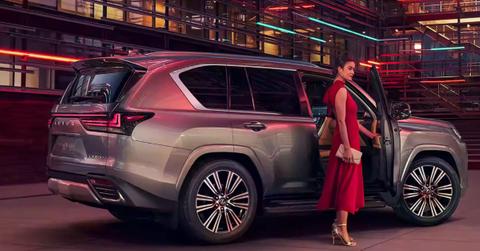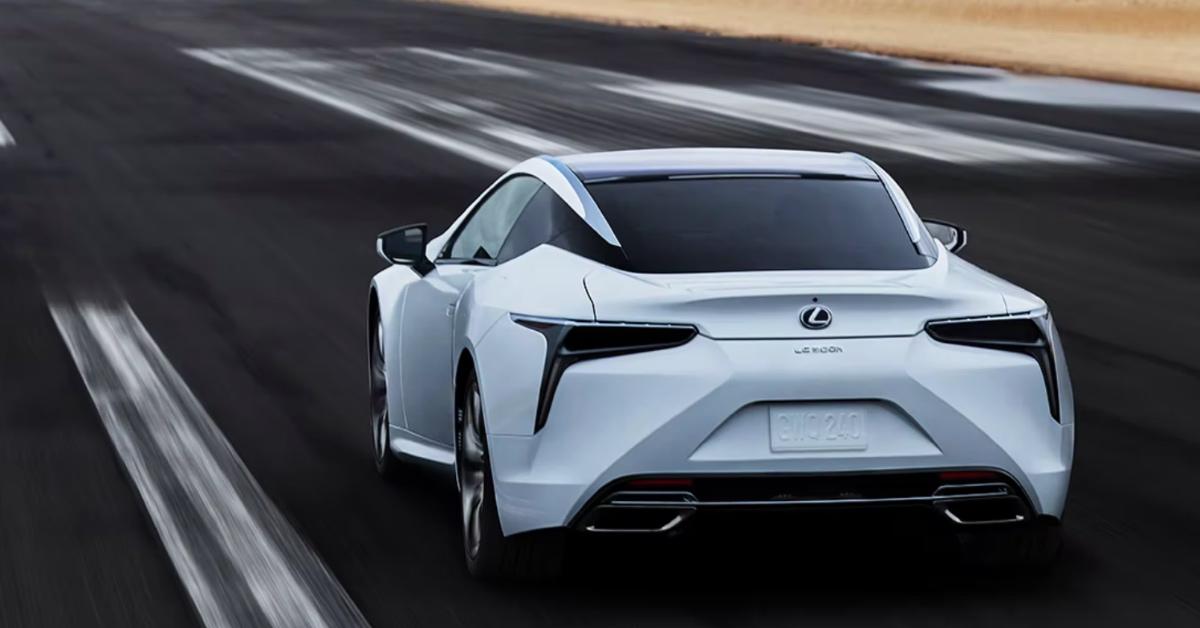Who Owns Lexus? The Car Brand That Let's Drivers "Experience Amazing"
The Lexus name has long been synonymous with luxury for car enthusiasts. Who makes Lexus vehicles and are they owned by Toyota? Find out here.
Feb. 21 2023, Updated 4:50 p.m. ET

2023 Lexus LX 600
The Lexus name has long been synonymous with luxury for car enthusiasts. For some, owning a Lexus might be a goal to be reached at a certain income or career milestone. Despite the fact that Lexus has and continues to serve as a leading independent car brand, many often associate it with Toyota, an automaker known to produce more affordable vehicles. Does Toyota own Lexus?
Although Lexus operates as its own entity with its own headquarters, it's owned by another company. Lexus is headquartered in Nagoya, Japan, with the majority of its manufacturing stationed throughout Japan. Keep reading to learn who actually owns the Lexus car company and see how it has evolved over the years.

2023 Lexus LC 500 convertible
Who owns the Lexus car company?
The Lexus brand is owned by the Toyota Motor Corporation and Eiji Toyoda is credited for inventing the Lexus car. Contrary to the rumors, Toyota didn't merge with Lexus. Instead, Lexus acts as a subsidiary of the automaker.
When did Lexus launch its first vehicle?
The Lexus brand was conceptualized initially in 1983 after Toyota chairman Eiji Toyoda posed the question and challenge of who could build the world’s best car. According to Rallye Lexus, the project was first called Project Flagship One, and some of the company’s research into the question involved consumer studies of wealthy California residents.
By 1989, the company conducted sufficient research and launched the Lexus brand with over 80 Lexus luxury dealers in the U.S. In 2019, the company crossed the milestone of selling 10,000,000 Lexus cars.
When will Lexus be fully electric?
In 2005, Lexus began selling a hybrid vehicle that paired a gasoline engine with an electric battery. Recently, Lexus launched its first plug-in hybrid electric vehicle (PHEV).
In 2021, the Lexus car company surpassed 2 million sales globally of electric vehicles. Like other major car manufacturers that plan to focus on electric cars, Lexus will focus first on Western Europe, the U.S., and China. In those regions, the company intends to be fully electric by 2030, while it will expand that goal across the globe by 2035.
Do Lexus and Toyota use the same parts?
Toyota Motor Corporation is responsible for manufacturing both Lexus and Toyota vehicles. This means the parts used to make them come from the same factories. However, Lexus is considered Toyota's luxury brand so the vehicles' engines may not be the exact same you'd find in a Toyota car or truck.
In fact, in order to keep up with the demand as the company goes electric, the Toyota corporation announced that it's building a battery manufacturing plant in Liberty, N.C. The new plant is expected to be operational by 2025 and employ around 1,750 people. The plant's construction is being funded through a $1.29 billion investment by Toyota and Toyota Tsusho, and the plant will produce lithium-ion batteries for electric vehicles.
The Toyota corporation plans to be carbon neutral by 2050 and says that the new North Carolina battery plant will use 100 percent renewable energy. The goal is for it to produce enough batteries initially to power 200,000 vehicles and eventually grow to power 1.2 million vehicles.
Where are Lexus vehicles manufactured?
The Toyota Motor Corporation was first incorporated in 1937 and then grew following World War II and Japan's collaboration with the U.S. Currently, the company includes five primary brands — Lexus, Daihatsu, Hino, Ranz, and obviously, Toyota.
Can you buy Lexus stock?
Since Lexus is an entity wholly owned by the Toyota Motor Corporation, investors can't buy specific shares of Lexus. However, Toyota is a publicly-traded company, so you can buy shares of Toyota stock on the New York Stock Exchange under the ticker symbol "TM."
Toyota stock is also traded on the London Stock Exchange, the Nagoya Stock Exchange, and the Tokyo Stock Exchange.
